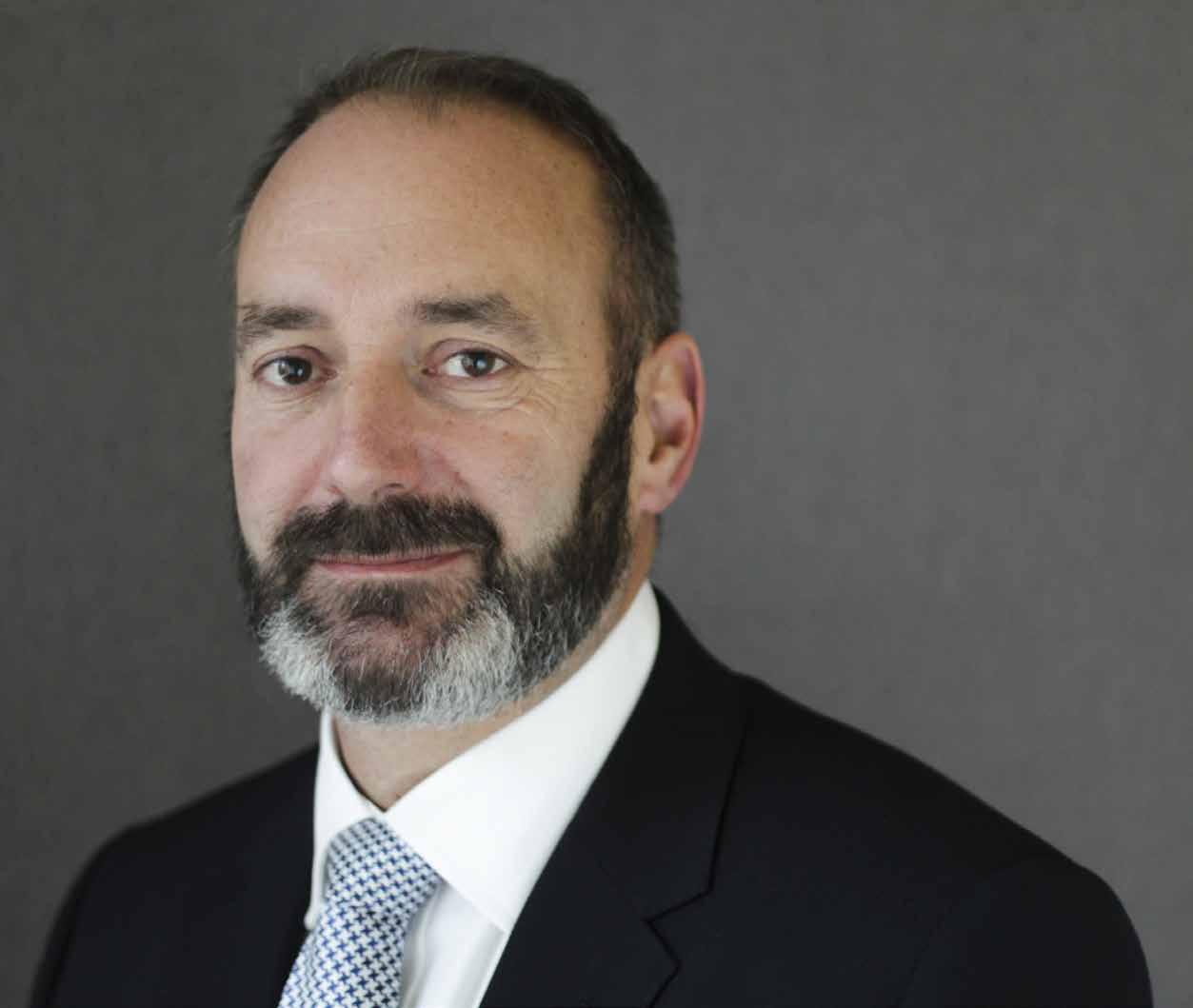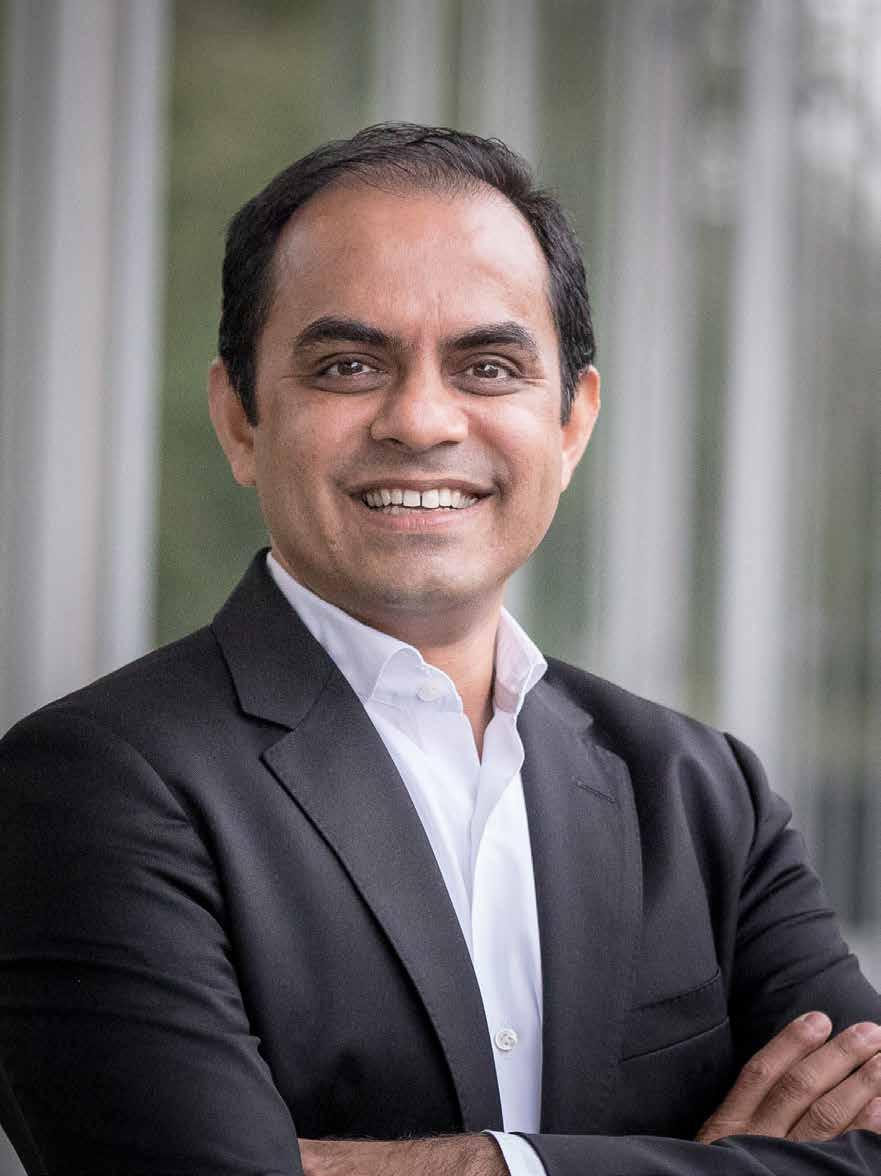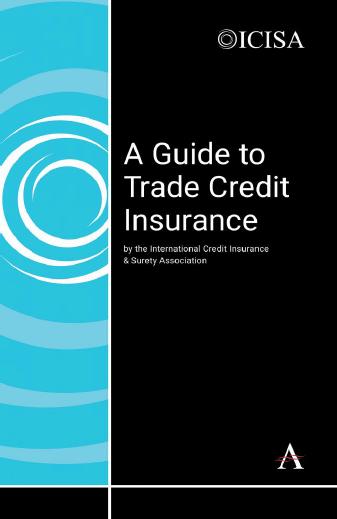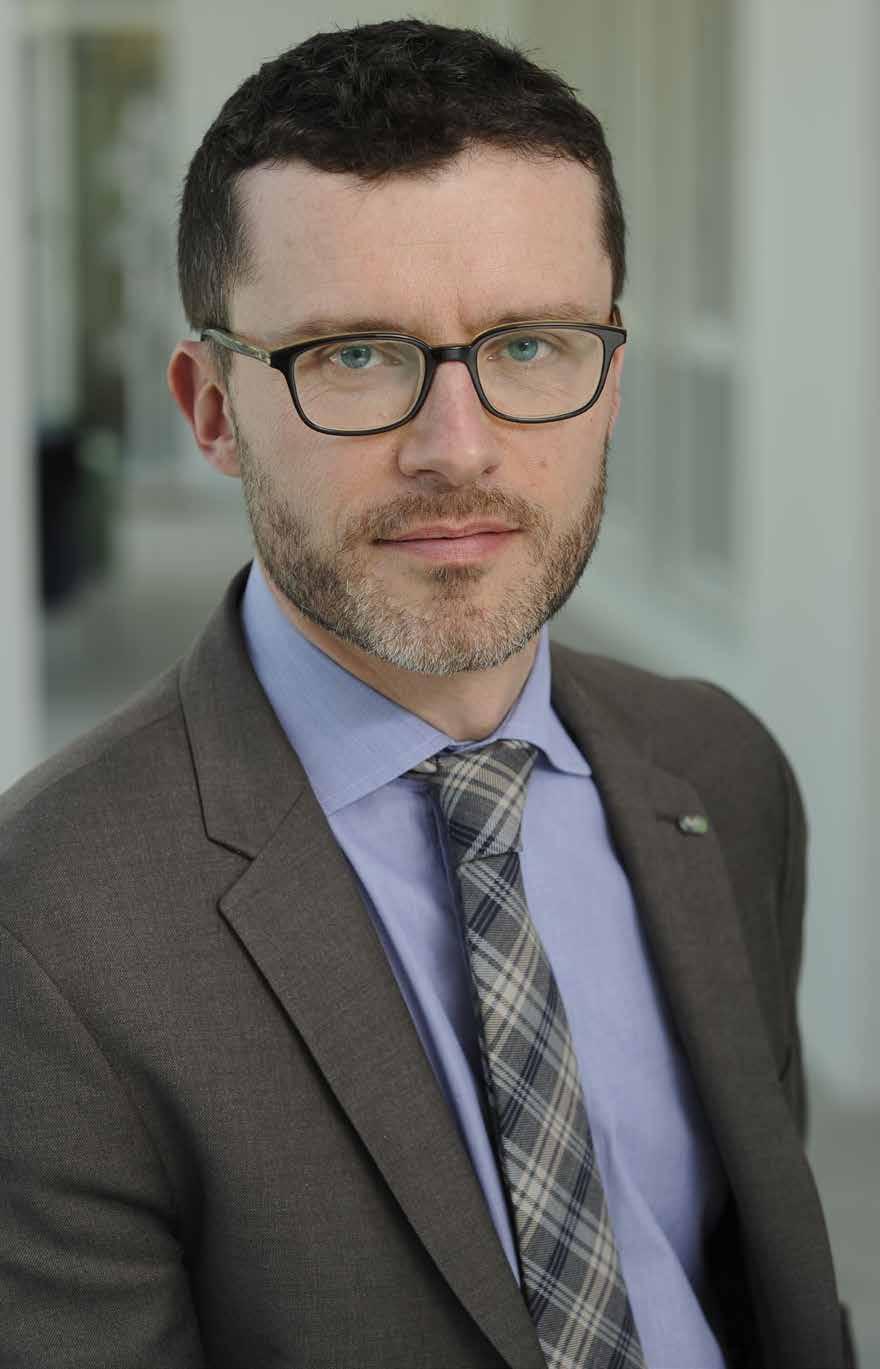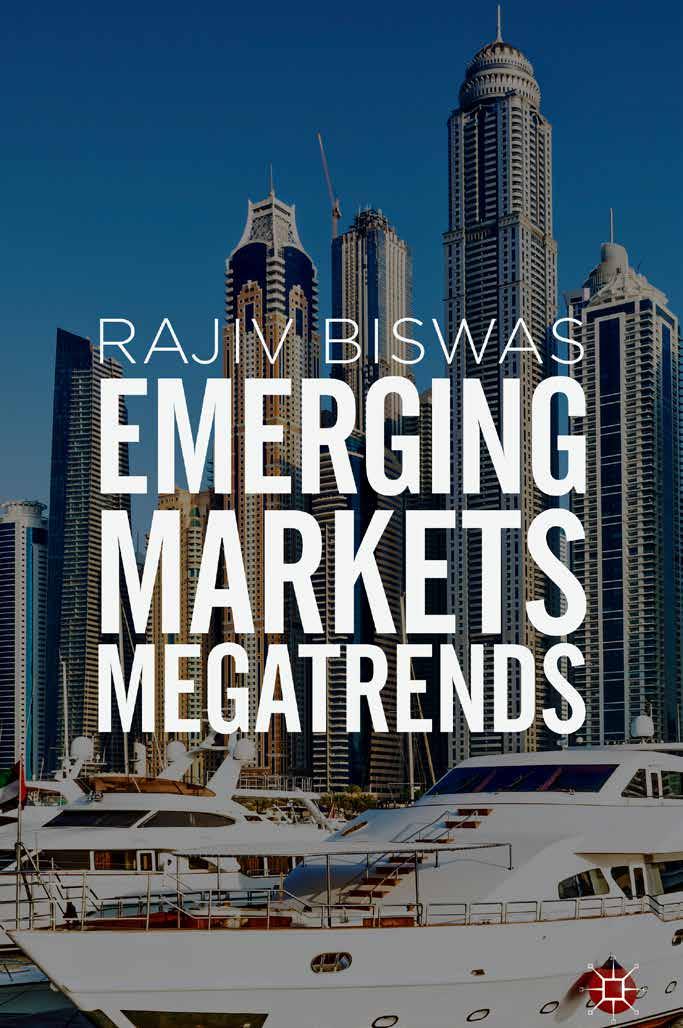
10 minute read
Update Committee Chairs
Committee of Underwriters – Igor Pirnat
I am sitting in the office late in the afternoon wondering how to start with the update on CoU for The ICISA insider, Autumn edition. In general I see myself, or at least, I would like to see myself as a person who’s view on everything is rather more positive than negative. So I would like to start with the positive aspect. I am happy that the global economy, since the last recession, is steadily growing for almost ten years now, and there is still no clear sign of a downturn. Or? Despite the positive economic growth in general we should not neglect the potential negative effects that some recent events, currently on the front pages of most magazines, could have on the global and local economic picture (e.g. The rise of radical extremist parties and nationalism in many European countries; USA protectionism (“trade war”) and so called “Trumponomics”; Slump of Turkey’s currency;… to name just a few).
Advertisement
Next to the common topics that are usually covered during the CoU meetings Countries, Trade Sectors, Specific Buyers/Risks/Cases and Technical topics – delegates also shared their views on the above stated concerns and how we as risk underwriters can react. I am more than pleased to see that all participants were willing to actively participate in the discussions and contribute their knowledge and expertise, which in the end is the main purpose of the Committee of Underwriters.
Main topics
Countries - Different countries were addressed. Especially Italy and Turkey were discussed in more detail.
Trade Sectors - Different sectors were discussed among which the retail sector in more detail.
Specific Buyers/Risks/Cases - This category, in my opinion, is the one where the added value for participants is the highest. It is true that delegates acting in the same region may compete, but I strongly believe that we have one common goal, that is to mitigate risk with openly shared information. In the Autumn Meeting the discussion was focusing on Aviation Financing; Understanding large Chinese Conglomerates; Growing market capacity of platforms (e.g. Amazon); … Igor Pirnat Chair Committee of Underwriters Company: SID First Credit
Technical Topics
The following technical topics have been raised:
Sanctions - An Insurer’s and Reinsurer’s view.
Trade and Tariffs - What is the foreseen impact of the taxes put in place on imports by the USA on Canada, EU, China and Mexico, with particular emphasis on the metal and steel industry? What will be the effect of the reciprocity measures by targeted countries? Will this lead to increased credit risk in specific companies/countries that are depending more on the metal and steel industry?
Brexit - What impact can be expected on credit risk? Is it a threat or an opportunity for the credit insurance sector? How to deal with it a “Brexit Continuity Clause”?
Prudential Regulation Authority (PRA) - Consultation paper regarding eligibility of guarantees as credit risk mitigation.
Big data - (automatic decision, single invoice cover, new digital insurers).
Other (Open Debate) topics
We are living in a rocketing fast changing environment, not just in the economy, but in all areas of our life. As these changes will affect also the credit insurance industry, all members were invited to suggest any interesting and challenging topics for discussion and share their opinions and views.
Continuation of the Update Committee Chairs
Credit Insurance Committee – Judita Svetin
The Credit insurance committee was looking forward to hosting Mr. Allesandro Terzulli, Chief Economist at SACE. His presentation defi nitely provoked vivid discussions in the CIC. It was a unique opportunity to hear from an expert in the industry and on the other hand, from a person who has insight information and an excellent overview of the Italian economy. The fact is that Italy is facing restless political and economic times and it is pushing the EU for debtforgiveness and new spending as the price for staying in the EU. One cannot forget the fact that we are talking about 3rd largest economy in the Eurozone. Its performance from financial and economic point of view is definitely being monitored also by credit (re)insurers.
Evergreen discussion in the CIC was members’ feedback from relevant markets, with focus on GDP movement, insolvency index, new legislation with influence on national economies and industry as such, market development and other relevant information which delegates find interesting to discuss.
ICISA`s project partner, PERILS, provided us with a detailed presentation on their work and mission, with focus on the PML/LGD project.
Already some years ago, the CIC discussed and compared different Insurance Premium Tax (IPT) regimes in members’ countries. The decision was, due to the fact it can have a competitive (dis)advantage, to discuss the topic in due course of time, so we distributed the questionnaire to examine whether there are any changes since the last discussion. Judita Svetin Chair of the Credit Insurance Committee Company: SID First Credit
During the last meeting we decided to continue the discussion on the topic of Top Up Cover. One would expect that, in times of a boosting economy, the demand for additional cover is not very high, so members’ feedback was valuable.
Sanctions regime, due diligence and practical experience (if any) from the view of an insurer were also topics that triggered interesting discussions.
During the Spring Meeting we did not manage to cover the index containing CIC agenda topics as from April 1993. As this is an abundant source of knowledge and information, we decided to screen topics in order to see which of them attract our interest most heavily and discussed which need to be updated.
I am sure that all attendees seized any opportunity (also during the social part of the meeting) to exchange experiences and share knowledge, which is the real value of membership of ICISA and its meetings.
Single Risk Committee – Olivier David
The single situation, structured credit and political risk market is more than even buoyant and now keen to move out of its comfortable confidential shell. The development of regulations, either at country or at European level, affects significantly all stakeholders of our market and we have finally realised that we could have a say, an influence on this regulation projects; but only if we dare acting, and especially if we manage to act together to increase awareness of our support to international trade and finance. ICISA, as an organisation, has impressed with its actions in supporting our market on this matter. Originally, by sponsoring the first market survey, a couple of years ago, which aggregated income, exposure and claims of the largest portion of the market, including nonmembers. For the past year, ICISA has hired a lobbyist to the EU parliament, who has already achieved results that few of us thought possible. This has brought hopes to all and increased interest in the organisation from nonmembers. Olivier David Chair of the Single Risk Committee Company: Atradius
A new survey is on the way to update the market data, new prominent members are joining our committee, and a new Chair, Stefaniya Ilina, has taken over the torch to bring us closer to our goals.
It has been a privilege for me to act as a chair of the single risk committee these past two years and I can only heartfully thank the ICISA staff led by Rob, my Vice Chair, Pierre Lamourelle, and all the committee members for their commitment and support.
Mark Farina, Senior Vice President and Chief Underwriting Officer at Argo Surety

Reinvesting in our future
I would imagine that if a group of 50 surety underwriters and reinsurers from the around the world were sitting in a room, and each had to explain how they found their way into the surety industry, you would get nearly 50 different stories. Further, I would guess that very few actually thought about being a surety underwriter or reinsurer growing up. My wife is a 5th grade teacher at a local elementary school in New Jersey in the states. Recently she asked me to stop by her classroom for a visit so she could introduce me to her students. After introductions, I was asked by the students what I did for a living. All they heard from my wife was that I spent a lot of time on airplanes traveling. I tried my best to explain what a surety underwriter is, and the truth is the vast majority of that class had glazed looks in their eyes, and to be honest they were hoping I actually piloted the planes versus being a passenger! Fast forward to the past 3 months where our company actively recruited four recent college graduates to join our Argo Surety team as trainees in our New York City, New Jersey, Houston and Chicago offices. Believe it or not, I saw the same glazed look in their eyes during the interview
process when explaining exactly what we do. Once the college graduates had a better grasp, there was some excitement in their faces. The reality is, that after 32 years as a surety underwriter, I can look back at my own career and honestly say that it not only allowed me to help financially support my family, but that it has been an exciting career where I have learned a lot about many different industries, economies and cultures throughout the world. Not many of my friends could say that they have visited the great shipyards of South Korea to inspect bonded ship building projects, or met with brokers and clients in Brazil to discuss tax judiciary bonds, or put on a hard hat and safety gear and toured a bonded coal mine 5 miles underground in Illinois, or flown in a helicopter over the Cook Inlet in Alaska to inspect bonded oil and gas platforms , or simply sat down in a board room one on one with a CEO of a major Fortune 500 company to better evaluate a client or industry that has a need for surety bonding. These are just a few examples of the hundreds of unique meetings and visits I have participated in over my career where surety bonding plays a very important role.
Getting back to my original thought, I do believe that our industry has to do a much better job of selling Surety to the next generation of underwriters. Whether that is through the SFAA or ICISA, or simply taking action on an individual basis and visiting a local high school or university to promote a career in the surety industry. I am in the latter half of my career having underwritten now for more than 32 years, and when I look at my counterparts throughout our industry I see the need for reinvestment. Similar to the shortage that is being seen in the airline industry for pilots, there is going to be a need for new surety underwriters to replace those retiring in the next few years. A recent study in the United States showed that due to the retirement of baby boomers along with industry development, that the insurance industry will be hiring 400,000 positions within the next three years. Millennials are the future of surety, and possess many of the qualities that can take our industry into the next century. They have been trained to adapt to new technologies, work in collaborative settings and have more of an entrepreneurial spirit for solving problems. To me, it is a very easy sell. As an industry we need to work together to get the word out on a global basis that Surety has opportunities for the next generation of underwriters and reinsurers.
I kindly pass the pen to Robert Murray, Global Head of Surety at Zurich, to share his thoughts with the readers of The ICISA Insider.


